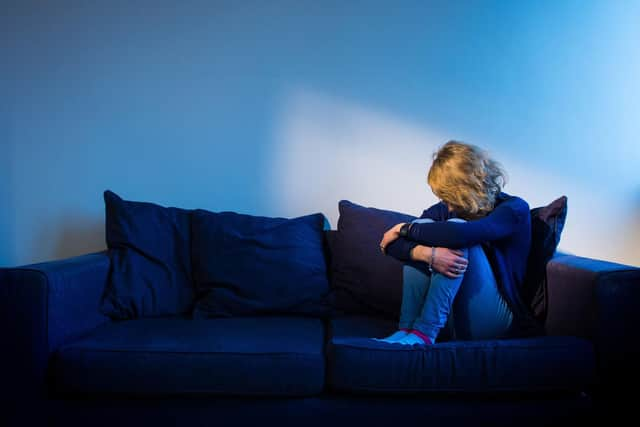Lockdowns had ‘catastrophic effect’ on nation’s social fabric, new report warns
The report from The Centre for Social Justice (CSJ) argues that the most disadvantaged in Britain are no better off than they were 15 years ago.
And it warns that Covid lockdowns had a “catastrophic effect” on the nation’s social fabric, blowing open a gap between the so-called “haves” and “have nots".
Advertisement
Hide AdAdvertisement
Hide AdIn the report, Two Nations: The State Of Poverty In The UK, authors cite evidence that suggests, for some people, making the jump from welfare into work is not worth it.


Some 13.4m people lead lives marred by family fragility, stagnant wages, poor housing, chronic ill-health, and crime, the centre says.
In stark outline, it states: "There is a growing gap between those who can get by and those stuck at the bottom.”
The report warns of a mounting crises for the nation's young people with as many as 2.3 million children to be diagnosed with a mental health disorder by 2030 if trends continue.
Advertisement
Hide AdAdvertisement
Hide AdAs report authors outline the impact of the pandemic lockdown – from a rise in domestic abuse to more children persistently missing school – there are calls for urgent action.
Lord King, the former governor of the Bank of England and one of those who produced the report, said money is “not the only solution” to the problem of deprivation.
“One glimmer of light is the institution of the family, rather than government, as a place of nurture, support, and fulfilment,” he said.
“No family is perfect, and families come in all different shapes and sizes.
Advertisement
Hide AdAdvertisement
Hide Ad“But if we are able to do more to support the family, then we can prevent the creation of an ‘unhappy generation’.”
The report featured a poll of 6,000 people, including half from those on the lowest income.
It also heard from more than 350 small charities, social enterprises and policy experts, with the commission travelling to three nations of the UK and to more than 20 towns and cities.
It found that the number of children assessed as having a clinically recognisable mental health problem has nearly doubled in 20 years, and is particularly acute among those aged 17-19.
Advertisement
Hide AdAdvertisement
Hide AdOverall, the report found, the most disadvantaged in society were three times more likely to report having a mental health condition.
And with Universal Credit caseloads rising, and 2.6 million people now economically inactive because of long term sickness, it warns “Britain is sick but being sick pays”.
Crime and an erosion in faith in the justice system, shabby housing and drug addiction are major obstacles. Respondents cited crime as the worst thing about living in their area.
The most disadvantaged worry twice as much as the mainstream in society about the quality of their housing and communities being “torn apart” by addiction, the report says.
Advertisement
Hide AdAdvertisement
Hide AdAndy Cook, chief executive of the Centre for Social Justice, said the report makes for “deeply uncomfortable reading”.
“Lockdown policy poured petrol on the fire that had already been there is the most disadvantaged people’s lives, and so far no one has offered a plan to match the scale of the issues,” he said.
“What this report shows is that we need far more than discussions on finance redistribution, but a strategy to go after the root causes of poverty, education, work, debt, addiction and family."